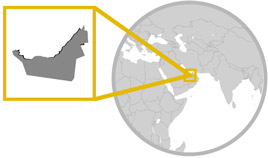Money
Turkey uses the Turkish Lira which can be divided down into 100 Turkish Kurus, the Turkish Lira uses the currency code TL or TRY and TRY 1 is equal to $0.48 or £0.28.
Coins come in 1, 5, 10, 25 and 50 Kuru variants as well as in a 1 Lira variant.
Bank notes come in 5, 10, 20, 50, 100 and 200 Lira variants.
Economy
Turkey has an incredibly diverse economy and sees large industry in technology, clothing, automobiles, construction and oil. The CIA has classed Turkey as one of the world’s newly industrialized countries and it’s known as an emerging market economy to the IMF. With an economy worth $1.4 Trillion GDP, Turkey sees a 4% annual growth each year and mainly exports to Germany, Iraq, Iran, the United Kingdom and the United Arab Emirates. Its main import partners are Russia, Germany, China, the United States and Italy.
Within technology, Turkey’s biggest areas are in Insulated winding copper wire (1.7%), Colour Television receivers, monitors and projectors (1.5%) and Combined refrigerator-freezers (1.3%). Meanwhile the clothing sector sees more exportation of T-shirts, singlets and other cotton vests (2.7%), Female suits (1.9%) and Male suits (1.4%).
Automobile exports are most frequent in Snowmobiles and golf cars (5.1%), Dump trucks (3%) and Bumpers and parts (2.6%) whilst construction sees more exportation in Bars or rods of iron or non-alloy steel (2.7%), Rectangular alloy-steel bars (1.7%) and in oil the most frequent exportation is in Petroleum, bituminous, distillates and non-crude oil (2.8%).
Banking
Banks in Turkey are the mark of the 21st Century and are in-line with other western economies and countries with major banks from all around the world such as Citibank, HSBC and ING Bank all setting up shop in the country. ATMs are plentiful and you should have no issues outside of the city drawing out money, accounts come in two main varieties; Current Accounts and Savings Accounts.
Current Accounts give you your money when you need it and where you need it with no repercussions, but you won’t gain much interest from this account type. Savings Accounts, however, may place restrictions on when and how much you may withdraw, but in return offer higher interest rates to bolster your funds.
Taxes
Turkey utilizes four types of tax; Income Tax, Property Tax, Car Tax and VAT. All non-residents in Turkey are only expected to pay tax on their income earned in Turkey; residents whom stay for more than six continuous months are also regarded as limited taxpayers in the same way.
Income Tax is paid by all individuals whom stay in Turkey for more than six months in a calendar year and it is applied on their worldwide income. Non-residents only pay tax on income generated in the country. Couples are taxed separately. Income Tax is taxable on all incomes from Salaries, Business profits, Agricultural profits, Rental income, Income from any self-employment, Income from capital investment and any other income or earnings. Self-employed individuals pay a flat tax rate of 15% of their net profit.
Property Tax is paid annually on all buildings and land owed with rates ranging between 0.1% and 0.3%, tax is calculated based on the land and the building’s facilities and the size of the plot in square metres. However, those whom earn less than TL 3,600 ($1730 or £1020) annually through a rental property are exempt from Property Tax. Additional Tax is calculated and added based on the amount of water used by a property. Tax is also applied at a rate of 1.5% during any transfer of property and must be paid by both parties involved.
Car Tax is liable on all individuals with a vehicle registered to their name. It is payable annually and is calculated based on the vehicle’s production date, size of engine and the type of fuel used. Typically, the older the vehicle, the less tax is paid yearly.
Stamp Duty is added to most documents at a rate ranging between 0.15% and 0.75% based on the value of the document.
VAT is added at 18% typically but in some occasions can vary down to as low as 1%. 8% is typically applied to all basic foods, medical products and books, whilst 1% is applied to all agricultural products, some residential properties, newspapers and magazines.

